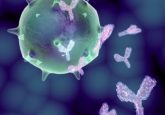A plea for female fertility preservation

We are in an exciting and interesting time, when oncologists and reproductive endocrinologists across the globe rise to the challenge of providing fertility services for people with a history of cancer. Indeed, developments in oncology have improved long-term survival rates, which can reach 90–95% for testicular cancer, hematologic malignancies, breast cancer and other cancers that strike children and young adults [1]. However, to survive cancer is no longer enough. The emphasis is shifting to enable people to live a life as normal as possible after cancer; this includes giving them the best possible opportunity to have their own biological children. However, recognition of the damaging effects of chemotherapy and pelvic irradiation, and sometimes of the disease process itself, in patients of reproductive age, is now common knowledge [2,3]. As a consequence, innovative technology and surgery have been developed in order to give hope of preserving the potential for biological parenthood after cancer. Although sperm cryopreservation before treatment is a well-established procedure, routinely performed for more than 20 years [4], the science and clinical practice of female fertility preservation remains at a pioneering level. This situation may be explained by the relative complexity of folliculogenesis and the large number of possible fertility-sparing treatments.
Click here to view full article.





